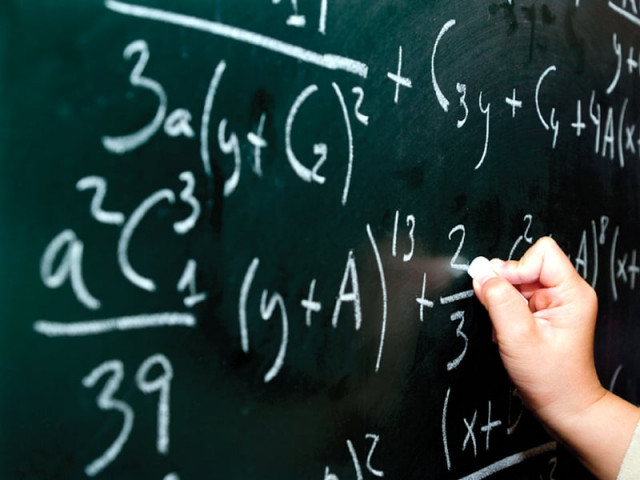School assessment: ‘Teachers’ learning levels very poor’
The project in its pilot phase looked at 15 schools.

A recently-introduced programme has found that teachers’ learning levels are very poor and this is reflected in students’ learning outcomes.
The initiative, called the School Assessment for School Improvement Programme (SASIP), launched under the Idara-e-Taleem-o-Aagahi, offers an audit of the overall performance of schools, said SASIP Manager Rabia Rafique.
“Obviously when teachers are not aware of what exactly they are teaching, it is going to have an adverse impact on the learning of the students,” she said.
In certain cases where there had been an improved learning outcome by the students, it did not necessarily imply that the teachers’ learning levels were high, Rafique said. “With students taking tuitions besides the academic learning they are given at schools, there is always a possibility that their improved learning is owing to additional learning,” she said.
The programme, which is a replication of the School Rating Project in India being run by the Micro Credit Rating International Limited (MCRIL), was initiated in Pakistan earlier in July by the ITA under the UKAID and Ilm Ideas advocacy and innovation funds for education in Pakistan. MCRIL is offering technical assistance to the SASIP team in Pakistan. Rafique said while there was no provision for offering school improvement in the project in India, the programme here aimed to provide school improvement action plans as well. But right now, the programme is only focusing on assessment with ranking possibly coming at a later stage, according to Rafique.
The project, which is in its pilot phase, has so far involved 15 schools, 10 in Lahore and five in Karachi, said Rafique. These schools (including private, trust and government) are not being charged any fee for their assessment. They have a fee structure ranging from Rs200 to Rs3000 a month.

Under the programme, a school assessment is conducted after which data is analysed and reports and results are shared with stakeholders. The SASIP team claims this process takes 10 to 15 days. The assessments look at students and teachers’ learning levels for English and mathematics. In case of students, Rafique explained, a study sample was created with a random selection of students from grade 1 to 10. Besides this, school facilities like building and classrooms are also assessed.
According to Rafique, the team’s findings so far are the facilities in schools are generally not sufficient as the schools assessed were all low-cost. This, she said, affected the turnout and the learning outcome of students.
The assessment also seeks to gauge the financial sustainability of a school, which Rafique claims is the most difficult aspect. “There are a lot of confidentiality issues but we have to convince them that it aims at ensuring sound finances for the institution,” she said. Out of the schools so far assessed, the SASIP identified 60% as sustainable and 40% as in financial stress. The programme aims to help these schools by linking them up with banks which can offer them micro-finance options, she said.
The programme aims to complete assessments for 30 schools in Karachi and Lahore by the end of the year. Meanwhile, the SASIP team is trying to raise awareness of their programme.“The most challenging part is to convince skeptical school managements about the benefit of the school assessment,” said Rafique.
Published in The Express Tribune, November 21st, 2012.


















COMMENTS
Comments are moderated and generally will be posted if they are on-topic and not abusive.
For more information, please see our Comments FAQ